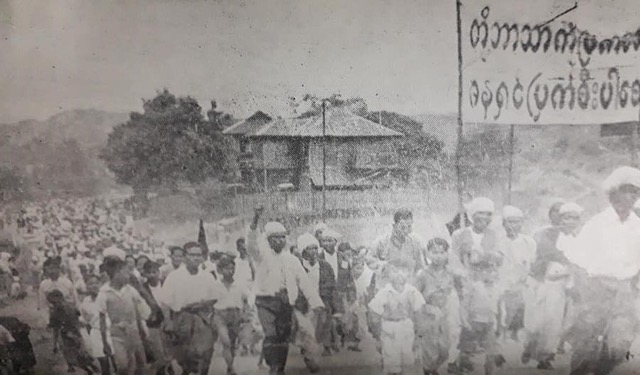Yangon – On this day 82 years ago, oil workers in Chauk in Magwe Region came out on strike for better pay and working conditions. The strike spread into the largest and longest-running national uprising during the colonial period.
The British-owned Burmah Oil Company (BOC), the biggest oil company in Myanmar at the time, sacked staff without providing a reason and paid low wages without giving medical leave, while reducing the number of religious holidays.
The strike spread from Chauk to BOC’s refinery at Thanlyin Township on Yangon’s outskirts.
Thousands of workers led by Thakin Po Hla Gyi marched about 650 kilometers to Yangon despite a violent crackdown by the colonial government. They were joined by thousands of workers, farmers and members of the Doh Bamar Asiayone (We Burmans Association) and other communities in the strike, which lasted for 18 months.
The movement was crucial as a national uprising against colonial rule and became known as the Revolution of 1300, named after Myanmar’s calendar.
Some strikers began to return to work voluntarily while others died of illnesses and some were coerced into returning by the British authorities. The BOC also yielded to some of their demands.
However, the strike succeeded in increasing political awareness.
Hundreds of protesters were imprisoned and over 20 people were killed in crackdowns. The pro-democracy uprising of 1988 is the only movement that is comparable in scale to the 1300 Revolution.
You may also like these stories:
The Day Anti-Chinese Rioting Erupted in British-Ruled Yangon
The Day the British Annexed Upper Myanmar

















